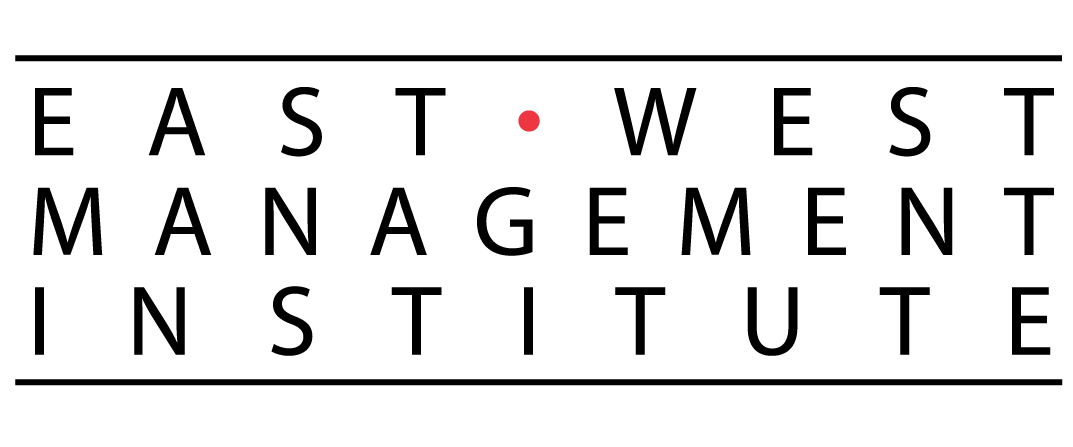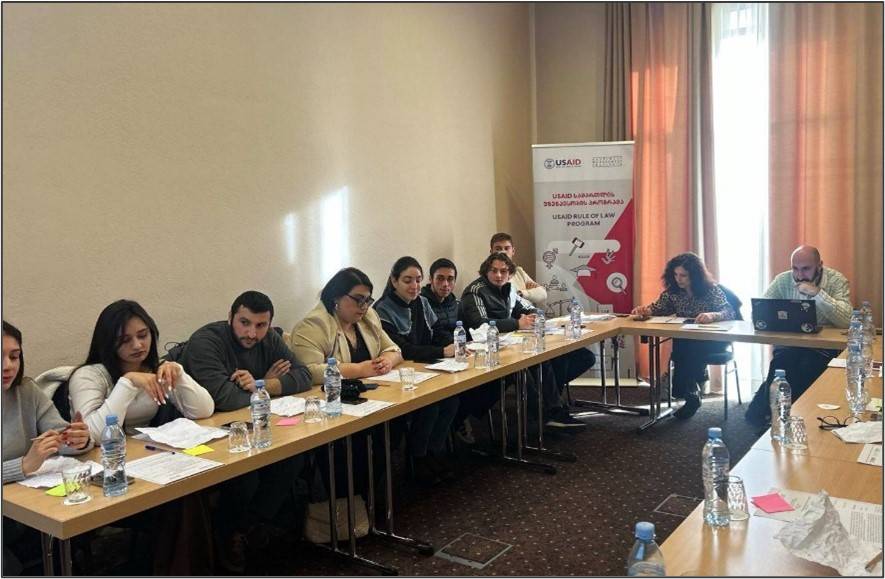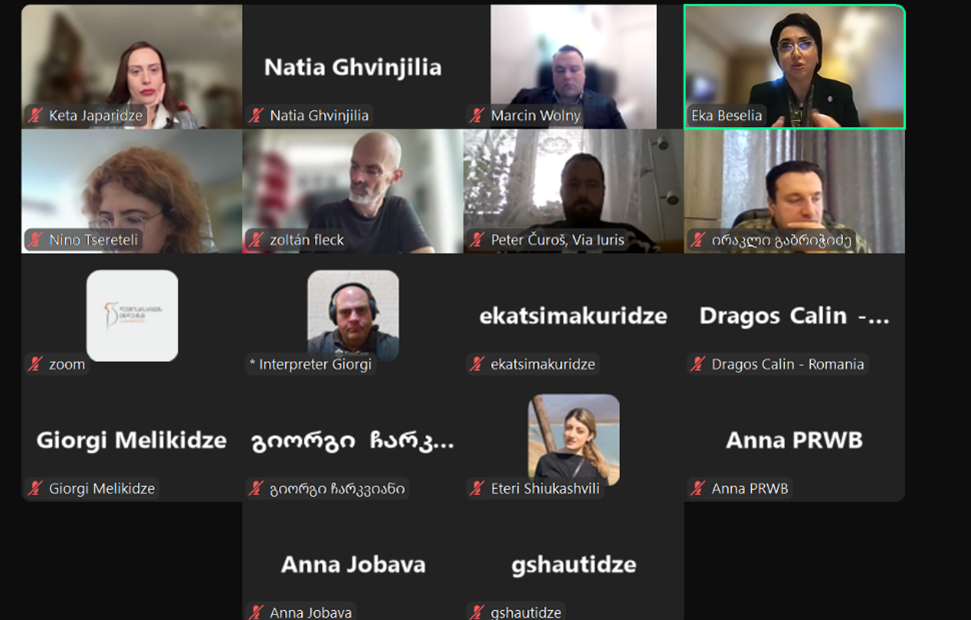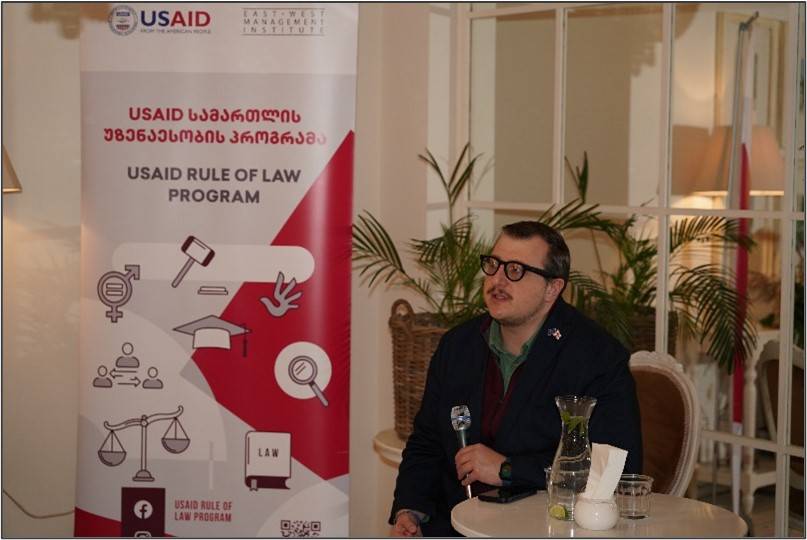Webinar for Akhaltsikhe Regional Court Judges and Staff
On December 12, 2023, four judges and twelve court staff members from the Akhaltsikhe Regional Court took part in the webinar organized by the USAID Rule of Law Program and the Center for Justice Innovation from New York, one of the most experienced organizations working on people centered justice in the United States.
The webinar focused on the role of the judiciary in court-community engagement and people-centered justice. Specifically, the webinar focused on key strategies that the court can employ to identify local community needs, by conducting community surveys and focus groups. The webinar served to support the court in implementing its Community Engagement Plan (CEP), formulated earlier this year with Program support. The CEP comprises nine community engagement activities that will be conducted by the court over the next three years, starting with focus groups and surveys to find out key areas of community needs.
In his welcome notes, USAID Rule of Law Program Community Engagement Advisor Dr Tim Bunjevac noted that one of the priorities of the USAID Rule of Law Program is to promote people-centered justice in Georgia. For this purpose, the Program has established strong working partnerships with Akhaltsikhe Regional Court and the Center for Justice Innovation in New York. He went on to explain that people-centered justice approaches seek to improve the performance of institutions and service providers in solving justice problems while dealing with unmet community legal needs. At the same time, people-centered justice focuses on the justice seeker in order to improve the quality of their experience of the court system, as well as the fairness of the outcomes.
Lindsey Price Jackson, Senior Program Manager from CJI, shared the mechanics of strategic planning for increased court-community engagement via court-community surveys and focus groups. She discussed in detail the process of formulating and implementing community surveys, including the choice of survey questions and the practical steps to be taken when organizing focus groups.
She also answered questions from the participants concerning the potential challenges involved in conducting surveys and focus groups, such as how to secure a representative pool of participants, ensure that the process remained anonymous, and select the appropriate persons to act as survey collectors and focus group facilitators.
Ms. Jackson also underlined the importance of involving community members in planning and implementing these activities as a way of bolstering the impact of such initiatives.







